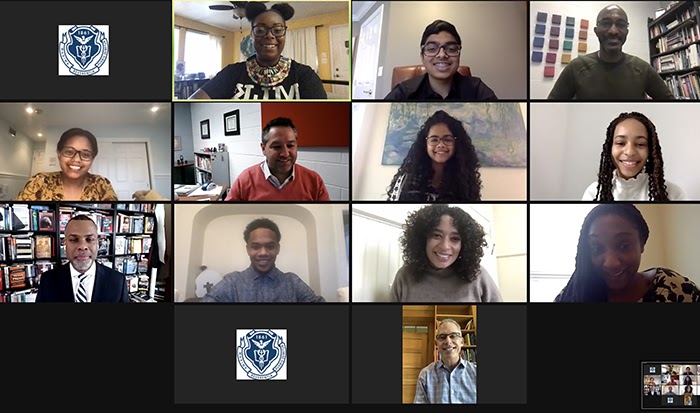
Feb 16, 2021 | Sidebar News
By Anjola Olawoye (IV)
Over 700 members of the Pingry community tuned into the annual Martin Luther King Jr. Assembly virtually. Throughout the years, this esteemed Pingry tradition has hosted various speakers, performances, and even skits to honor King’s legacy. A couple of years ago, Sarah Collins Rudolph, a survivor of the bombing of Birmingham’s 16th Street Baptist Church, shared her distinctive experience during a MLK assembly. This year, we had the privilege of hearing reflections and perspectives on Dr. Martin Luther King Jr’s legacy, presented by Dr. Eddie S. Glaude Jr.
Dr. Glaude Jr. is a James S. McDonnell Distinguished University Professor and the Department Chair of African American Studies at Princeton University. He has been featured in numerous media outlets, including NBC’s Meet the Press, MSNBC, and CNN. Dr. Glaude earned his Ph.D. at Princeton University and currently holds degrees in African-American studies and religion.
At the beginning of the virtual assembly, the members of Pingry’s Afrofuturism HIRT (Humanities Independent Research Team) introduced themselves and Dr. Glaude. Throughout his reflections, Dr. Glaude often quoted King and James Baldwin, a civil-rights era African American novelist. He addressed numerous questions regarding our current political climate, including the following: how would MLK react to the events that plague our country today, and is America ready for a true multi-ethnic and racial democracy that would resonate with MLK’s legacy?
Furthermore, Dr. Glaude compared the US Capitol riots in D.C on January 6th to Black Lives Matter protests over the summer, particularly emphasizing police responsiveness in both situations. More importantly, he explained the division of our country and the events that perpetuated it. The most significant phrase Dr. Glaude cited from Dr. King was “equality is a loose expression for improvement.” While King believed that Americans viewed racial harmony differently, he still strived for a peaceful coexistence among the races. In the words of Dr. Glaude, “Dr. King’s legacy has been reduced to a four-word sentence: ‘I have a dream.’”
Towards the end of the assembly, Dr. Glaude offered a dual challenge to both America and Pingry by posing the following question: what kind of school does Pingry want to be? Beyond that, what are the expectations of America? He also encouraged Pingry students to live up to the school’s values, especially those stated in the Honor Code.
Overall, students learned from and enjoyed the assembly, as evidenced by the interactive Q&A session. Students shared a plethora of thoughts on Dr. Glaude’s words. For example, Dhruv Nagarajan (II) asked, “What sparked Dr. Glaude’s activism for social justice and wanting to make a change?” Student Body President, Nolan Baynes (VI), stated that this was one of the most important assemblies we have had at Pingry. Other students from various grade levels also reflected on their individual experiences and takeaways from Dr. Glaude’s speech.
The Pingry community also honored Dr. King in other ways, especially through community service. On MLK Day, Pingry students, parents, and faculty members engaged in the annual “MLK Day of Service,” albeit virtually, to fulfill Dr. King and his everlasting legacy.
The Pingry community thanks Dr. Glaude for his impactful speech.
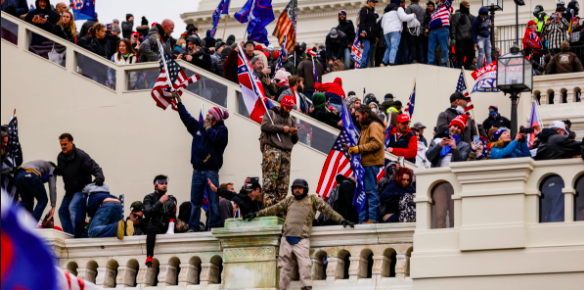
Feb 16, 2021 | School News, Sidebar News
By Kate Marine (III)
On the morning of January 7th, Upper School students were given the opportunity to attend various processing sessions via Zoom in response to the unprecedented events that occurred at the US Capitol Building the previous day. Among these sessions was a news brief, also via Zoom, from Mr. Matt Honohan. It aimed to give students and faculty some guidance in understanding what exactly transpired at the Capitol, and how our country came to such a point.
Mr. Honohan is a faculty member of the Upper School History Department, where he currently teaches World History 10, as well as three sections of AP Government and Politics. “I have a real passion for our country, and for our political system,” Mr. Honohan said, regarding his position as a government teacher, “so what I really enjoyed about [the news brief] was [bringing] a slice of what I do in AP Gov to the student body as a whole.” The session’s goal was to give both students and faculty a better sense of the country’s current situation, with the hope that understanding this event would be the first step towards processing it. With all the chaos that has accompanied the 2020 US election, Mr. Honohan especially wanted the talk to address a central question: how did we get here? “We wanted students to have a better chance of understanding why we had such chaos in the Capital, and [of understanding] some of the legal and constitutional reasons why things got so messy by January 6th,” Mr. Honohan said.
In terms of its impact on the Upper School community, the news briefing on January 7th was successful and received positive feedback from both students and faculty. “Before, I had a cursory understanding [of the January 6th events],” Leon Zhou (III) said, “but after attending the briefing I had a much more detailed understanding of the events that happened, and ones leading up to them.”
Although we hope that the events of January 6th will never have to repeat themselves, Mr. Honohan stresses the importance of staying politically engaged in the world around us. “One of the things I particularly love about teaching government is [that] it is, in a fundamental way, citizenship training,” Mr. Honohan said. “Everybody in the school is going to be eighteen soon and voting.” For that reason, although he does not expect students to “be massively politically engaged,” Mr. Honohan hopes that events like the storming of the Capitol can demonstrate to students the very real and immediate consequences of politics affecting the country as a whole. “It’s easy to live life from crisis to crisis, but the challenge is to develop a degree of consistent engagement,” Mr. Honohan explained. “I hope [these events] spur students to be more consistently engaged in the world around them.”
In such unstable times, events like the ones of January 6th can easily seem scary and overwhelming to the average newswatcher. It is for this reason that staying educated is so important to processing the events both individually and as a community. “The events of January 6th and [similar] events will only drive us apart using fear and political divide,” Zhou said. Unless, of course, we bridge that divide with political awareness and common understanding — perhaps that bridge is the one thing we can keep stable amidst a turbulent year for our country.
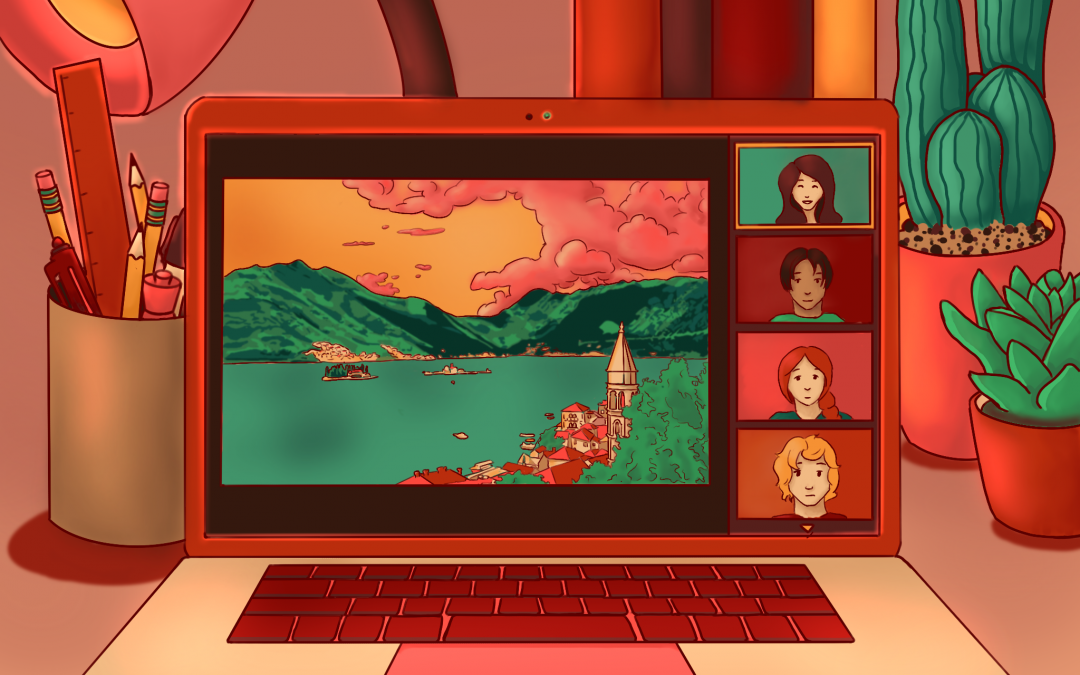
Feb 16, 2021 | Mirika Jambudi, Sidebar News
By Mirika Jambudi (IV)
Over Winter Break, students were given the opportunity to participate in Pingry’s first ever virtual Global Program. Ms. Julia Dunbar, Director of Global Education and Engagement, and Dr. Megan Jones, History Department Chair, worked together to convert this Global Studies Program into a three-day virtual course with the help of Atlas Workshops.
This program was based on the previous Global Studies Program, “Nations at a Crossroad: Nationalism and Religion in the Balkans,” which was a thirteen-day travel course. In that course, students visited areas of Croatia and Bosnia and Herzegovina, learning about the Yugoslav Wars and the underlying nationalist strife that caused the regional divisions.
In this year’s virtual recreation of the trip, students were able to meet and speak with actual residents of the countries. Many shared that these conversations were one of the most valuable aspects of the Program. For three hours each morning, from December 21st through 23rd, Pingry students dove into the history and politics of the former Yugoslavia, meeting and interacting with locals, participating in group discussions and activities, and ultimately working towards an answer to the overarching essential question, “What makes a nation?”
Ms. Dunbar and Dr. Jones remarked that they were very pleased with the virtual program. Although the “power of in-person travel is irreplaceable,” the Global Education and Engagement Department hopes to offer more virtual courses to Pingry students as “a complement to [Pingry’s] travel programs.”
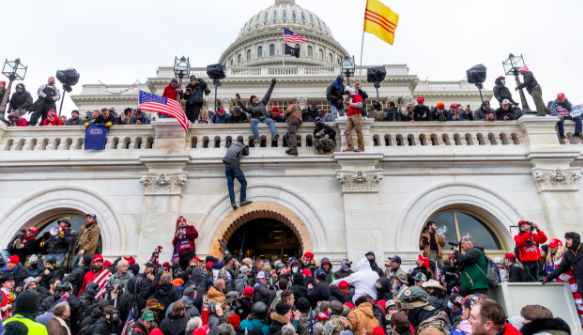
Feb 16, 2021 | Sidebar News
By Sophia Lewis (V)
On January 6, supporters of President Donald Trump gathered in Washington, D.C., to protest the Congressional certification of the 2020 presidential election. Following the rally, a group of rioters stormed the Capitol Building. Four rioters and one Capitol Police officer died as a result of this assault.
The protestors had arrived in D.C. bearing signs and wearing shirts that read “Trump 2020” and “Stop the Steal.” After initially protesting outside the White House, they were greeted by President Trump, who demanded that Vice President Mike Pence and other members of Congress seek to overturn the election results. Following Trump’s speech, the rioters pushed through a barricade and stormed the Capitol. They broke windows, released chemical gas in the hallways, and vandalized congresspeople’s offices, most notably that of House Speaker Nancy Pelosi. Some even made it into the House Chamber, where one rioter stole a lectern. The Capitol had to be evacuated, and pictures of congressmen and congresswomen hiding between seats in the Chamber quickly circulated.
The riot, which was broadcasted on nearly every news outlet, left many people in the Pingry community feeling shocked, appalled, and angry. That night, as Congress resumed the vote count, Head of School Matt Levinson emailed the community, condemning the riot and discussing the Honor Code in the context of American democracy. “The concepts embodied in [the Honor Code] are timeless, particularly…working for the common good rather than solely for personal advantage.”
It was then announced that there would be two processing sessions to be held the next day during the first two class periods. The sessions welcomed hundreds of Pingry students and faculty members, and even as Zoom calls capped at 400 participants, community members listened in through phone calls and FaceTime. There were a multitude of emotions during these sessions. Many students were angry and upset, with a few close to tears. Some chose to share their personal experiences, while others chose to listen. Many students’ common frustration was the Capitol Police’s lack of response to the rioters in comparison to their response to the Black Lives Matter protests that took place over the summer, where swarms of guards lined the Capitol steps. Many students also expressed disgust over Confederate flags and anti-Semitic articles of clothing (such as a “Camp Auschwitz” sweatshirt) making it into the Capitol.
In addition to the processing sessions, there was another session held by Mr. Honohan, where he provided students with an overview of the events leading up to January 6, to help them understand why and how the riots occurred. He also discussed the constitutional issues surrounding the election and why President Trump had called for his supporters to protest in D.C. on January 6. Mr. Honohan stated that he “hope[d] that by providing background information, students would feel better equipped to process the events that occurred.” During CP, Mr. Levinson held separate meetings with upperclassmen and underclassmen to share his thoughts on the event.
Overall, many in the Pingry community were pleased with the swift response. One thing that stood out was that, even during normal class time, teachers chose to bring up the subject and give students a space to process the event, showing the solidarity we have as a community.
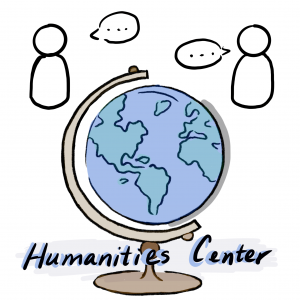
Dec 10, 2020 | Clubs, Emily Shen, School News

By Emily Shen (V)
It is that time of year again: the Humanities Center is now open! As the School continues to experiment with Pingry Anywhere, students are looking for the best ways to seek academic help outside of class. Although beneficial, it can be difficult and intimidating to sit down with a teacher over Zoom. For this reason, Sam Wexler (V) and Emily Shen (V) have decided to open the Humanities Center as a resource for Pingry students.
Wexler and Shen designed the Humanities Center around the realization that connecting with peers can be extremely beneficial to learning. Whether that be working on projects together, or last-minute cramming, hearing a friend’s way of thinking can help retain information a lot better.
In a year of instability, the leaders believe that academic support among peers is more important than ever. The Humanities Center aims to accomplish this by assisting students in their History or World Language classes. The tutors are a group of qualified students who have taken a specific history or language class within the last year, and have a thorough understanding of the material from that class. Through the Humanities Center, they will utilize their knowledge to help each student in a timely manner. Whether the student has a simple question, or needs more extensive help reviewing the class materials for an upcoming assignment, the tutors will be able to provide the appropriate help. Given the protocol for club meetings this year, all help will be carried out remotely; the designated tutor will connect with the student via email or set up a Zoom meeting to ensure that the student’s questions get fully answered.
The Humanities Center is a safe space for all students to receive the help they need in their History and World Language classes. We encourage students to make use of the Humanities Center as an additional resource to the academic support provided at Pingry. If you would like to learn more about where you can access the Humanities Center, feel free to click on the announcement on Pingry Today, where you can find a request form. If you are interested in joining us or have any other questions, feel free to email eshen2022@pingry.org or swexler2022@pingry.org for more information!
Dec 10, 2020 | Clubs, School News
By Evan Wen (IV)
This year, the Competitive Programming Club was formed to introduce Pingry computer science students to competitive programming. In competitive programming, participants are given problems that they must solve by writing programs.
The club primarily focuses on preparing students for the USA Computing Olympiad (USACO) and contests on Codeforces, a website that hosts online programming competitions. Both of these competitions are online, which means they’re guaranteed to run, regardless of closures to due coronavirus, and are a great way to pass time while at home.
Several students are preparing for the USACO, which has four divisions: bronze, silver, gold, and platinum. An upcoming contest on the weekend of December 18-21 is an opportunity for competitors to get promoted to higher divisions. In November, Alan Zhong (III), Nick Meng (III), and Hansen Zhang (III) competed in the online Montgomery Blair Informatics Tournament. In the future, there will be more team competitions as well as in-person competitions, once it is safe to gather in large groups.
Participating in competitive programming has many benefits, including preparing for interviews for programming jobs. Companies such as Facebook, Apple, Netflix, and Google all interview candidates by giving them tasks similar to those featured in programming contests. By learning from these programming competitions, participants are essentially also getting ready for job interviews at top tech companies.
If you are interested in programming or solving puzzles, let club leaders Chris Gu (V) and myself (Evan Wen) know via email. Currently, we are in the process of organizing a mock programming contest that will take place after winter break. If you aren’t sure whether competitive programming is for you, I suggest giving this mock competition a try. In addition, the Competitive Programming Club currently meets once a week to go work through problems that are selected from past USACO contests. Members may also choose to practice on their own by doing contests on Codeforces, solving past problems online, and reading online resources to learn more about certain techniques. Despite the challenges of the pandemic, the Competitive Programming Club looks forward to a year filled with strong results!
Dec 10, 2020 | Clubs, Mirika Jambudi, School News, Sidebar News
By Mirika Jambudi (IV)
On November 20, Pingry students participated virtually in the Princeton Model Congress (PMC), originally scheduled to be held in Washington, D.C. PMC, the oldest model congress in the country, provides students the unique opportunity to learn about and experience the American legislative process.
Unlike most Model Congress conferences, PMC is unique in that students are not assigned a member of the U.S. House of Representatives or Senate to represent at the conference. Instead, students arrive at the conference with pre-written bills, which they then debate and amend in their committees, with the ultimate goal of passing them. Students can write bills on any topic that falls under their committee’s scope and take whatever stance they would like in the discussions.
Despite the virtual format, students engaged in extensive policy debate and ultimately walked away with a greater understanding of the process that goes into passing legislation. Vared Shmuler (IV) stated that he “had lots of fun, despite the virtual format.” Olivia Roure-Singh (IV) said that “though this was [her] first conference, it was still a very engaging and informative one.”
A special thanks goes out to Dr. Megan Jones and Dr. Gillian Johnson for organizing and coordinating Pingry’s participation in the virtual conference, especially in the midst of all the scheduling changes.
Ultimately, the conference was a success for Pingry students. They were able to participate in a lively and exciting weekend filled with lots of debate, and they are looking forward to returning (hopefully in-person) to Princeton Model Congress next year.
Dec 10, 2020 | Arts, School News, Sidebar News
By Sophia Lewis (V)
This year, the Pingry Drama Department put on a successful Fall production, albeit in a different format due to COVID-19. Almost, Maine, by John Cariani, was picked for this year because of its format of nine small vignettes, which allowed for socially distant rehearsals. A play “for romantics, not for sentimentalists,” each of the segments is about love in its many different and sometimes comedic forms. All nine scenes take place in the town of Almost, Maine at 9:00 PM. Themes such as new love, marriage, and even the ending of a relationship are explored. Because of COVID-19, the stage directions calling for kissing, hugging, and handholding were off limits. So, throughout the play, the cast sought to answer a crucial question: How do we show love for someone during a pandemic?
Many other changes were made due to pandemic restrictions. For example, rehearsals were done primarily outside with masks on and with a limited number of people. Additionally, scenes were filmed before the dates of the live performances in the event that the school had to go remote. Unfortunately, the actual play was not on the Macrae Stage, but was instead performed outside in the middle of the Student Village. The set and tech crew had to assemble the set outside and then manage the tech equipment while protecting it from the elements. This included cold and rainy weather, with the stage freezing over halfway through opening night.
Despite the restrictions, the experience was still an enjoyable one for everyone involved. Cast member Grace Stowe (IV) stated that “doing Almost, Maine was one of the best decisions I’ve made this year- it was so wonderful to be able to connect with people during the pandemic.” Ronan McGurn (IV) agreed, saying: “It was pretty poggers [slang for amazing].” Student Director Anna Stowe (V) said that she was “beyond happy to be working with everyone because everyone worked so hard and never gave up hope even when we didn’t know if school would stay open.”
Thankfully, Almost, Maine was able to go forward as an in-person performance, and ended up a huge success. One audience member remarked, “I was blown away with the amount of commitment it took from both students and faculty to produce such a thought provoking show during a pandemic” and that “it was very enjoyable to watch as an audience member.” Not only was it a success, it was also COVID-safe; not a single member of the cast tested positive for or was contact traced for COVID-19 during the duration of rehearsals and performances. Senior class member Lily Arrom (VI) said that “even though I missed performing in Macrae, doing the show outside was actually really enjoyable, and I will definitely cherish my time spent performing at Pingry.”
Dec 10, 2020 | School News, Sidebar News
By Rohan Prabhu (V)
On November 13, 2020, both in-person and remote students tuned in to watch the annual John Hanly Lecture on Ethics and Morality. With the unfortunate passing of Mr. Hanly in August, it was only proper that this year’s lecture would honor its namesake and Pingry’s former headmaster.
Mr. Levinson prefaced the lecture with a few remarks about Headmaster Hanly’s impact on the Pingry community; he mentioned that “[Mr. Hanly’s] leadership helped to shape Pingry . . . and [he] is remembered most for his commitment to ethical and moral education . . . as he expanded the scope of our Honor Code.”
Pingry also invited Mr. Al Romano, a former Drama Department chair, to speak to Mr. Hanly’s importance to the community.
Mr. Romano’s speech was a strong testament to Mr. Hanly’s focus on morality and virtue, as he highlighted Mr. Hanly’s philosophy on running Pingry. Mr. Romano, noted “[Mr. Hanly] placed in the hallway a bench, where he could often be seen sitting, chatting with students.” This gesture reflects Mr. Hanly’s emphasis on connecting with Pingry students.
Drawing on an end-of-year speech made by Mr. Thomas Keating, Mr. Romano recalled Mr. Hanly’s public speaking skills. Mr. Keating explained that Mr. Hanly’s emphasis on a positive teacher-student relationship empowered teachers to continue their work, even as summer vacation approached; this quality made Mr. Hanly a masterful teacher. In addition, he led an annual tradition of reciting “A Child’s Christmas in Wales” by Dylan Thomas to help alleviate the stress of college admissions and more. As a tribute to Mr. Hanly’s legacy, Mr. Romano recited this poem himself.
Following Mr. Romano’s remarks, a panel of students from the Middle School student government and the Upper School Honor Board were invited to the stage. These students read messages from former students of Mr. Hanly’s during his time as Head of School. Each of the messages reflected on Mr. Hanly’s morality; one note, read by Olivia Telemaque (V), shared a fond memory: “Mr. Hanly was an inspirational leader of Pingry. During my difficult first year at college, Mr. Hanly sent a letter from Pingry with a quote from an educator, regarding struggle and character. I wrote to Mr. Hanly explaining how his letter touched me deeply. He wrote back a kind and encouraging letter. I kept his letters in my desk drawer throughout college and medical school as inspiration and encouragement,” Jong Yung shared.
The 2020 Hanly Lecture on Ethics and Morality highlighted Mr. Hanly’s role in Pingry’s growth, as he helped sculpt the school into what it is today. The Pingry community is forever indebted to his work, and both Mr. Romano’s speech and the messages shared by alumni are a tribute to his long-standing impact on Pingry.
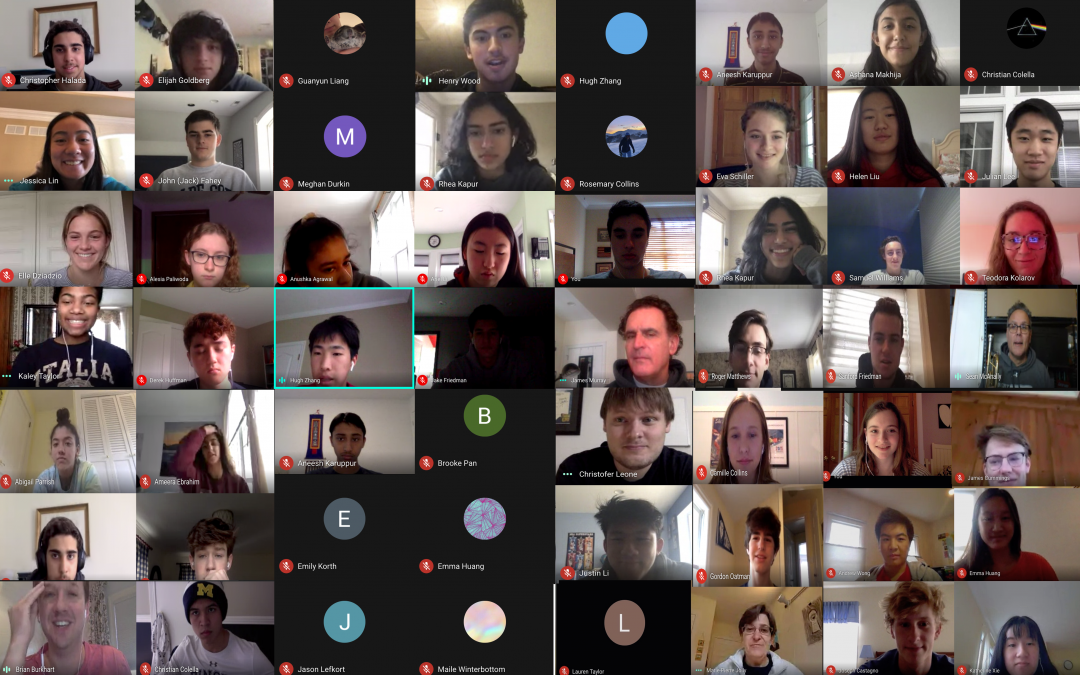
Dec 10, 2020 | COVID-19, Emily Shen, Front Page News, School News
By Emily Shen (V)
In early November, as the number of COVID-19 cases continued to spike in New Jersey and across the country, members of the Pingry community wondered whether the school would transition to fully remote learning. And it did. On November 13, Head of School Matt Levinson sent out an email to the Pingry community addressing the operational status of the Basking Ridge Campus. From that date through the week after Thanksgiving break, the Middle and Upper Schools would transition to all-online instruction. According to Mr. Levinson, this was a difficult decision based on numerous factors, including case numbers at Basking Ridge and concerns about travel during the holiday season.
Many members of the Pingry community expressed a lack of surprise by the School’s decision. Leila Elayan (V) was expecting Pingry’s decision to shift to remote learning the week before Thanksgiving due to “the steady increase in cases in the area and nationally.” Moreover, the increasing number of students who were contact-traced was another salient indication of the impending shutdown. According to Lailah Berry (V), “a lot of students and staff were contact-traced after Halloween, so going fully remote seemed like a necessary precaution,” especially with the prospect of folks visiting family over Thanksgiving break.
Last spring, Pingry transitioned to remote learning for almost a whole semester, but for many, the remote experience feels different this year. Teachers spent a lot of effort over the summer experimenting with remote learning and are now much more prepared. When asked about her classes as compared to those back in March, Sarah Gagliardi (V) said, “I think since then we’ve managed to fully adapt to the idea of learning and working remotely, because, this school year, the idea of being fully remote is not as new or surprising as it was last spring.” She continued that “because this is not the first time we’ve gone completely virtual, it has given the Pingry community more time to prepare and work out the flaws in the process.”
Although the community is more prepared this academic year, some students still find remote learning to be exhausting. As teachers assign roughly the same workload they would if students were in school, students find screen time to be one of the biggest challenges of remote learning. “Remote learning is still exhausting,” agreed Sam Wexler (V). “I spend around ten hours on my laptop pretty much every day, partially because of classes, but also because nearly all my work is online.” However, given the nature of remote learning, there isn’t a lot that the teachers can do to improve screen time exhaustion. Most teachers have adhered to the “45-minute synchronous class” rule, but asynchronous work can still get overwhelming since most materials are still online. “I would rather we just have class for the full hour and five minutes, as whatever asynchronous activity we do is always on the computer anyway,” said Kristin Osika (V).
In this era of uncertainty, members of the community have learned to appreciate the time they spend together in person. Many students who experienced both remote and in-person learning actually preferred classes to be fully remote rather than a hybrid model. “I much prefer it when everyone is home instead of the hybrid. I like it when everyone is pretty much on the same page and I don’t have to fear missing out,” said Elayan. Christine Guo (V) agreed, adding, “it was difficult to participate in class since half of us were in person and the other half were not. Once more of the class became remote, it wasn’t a problem.” Despite this, most students still hope to be together in-person again. Emma Drzala expressed that “in-person was definitely a better learning experience. Teachers could carry out more activities, especially in STEM classes.”
When discussing Pingry’s reopening plan after Thanksgiving, many were cautiously optimistic. Although the school has done everything it can to take health precautions, other factors, such as national COVID-19 case numbers and local guidelines, may affect the plan moving forward. However, although students and faculties could not all be in person, Pingry is still holding on. With the holiday season coming up, it is important to appreciate the efforts and progress that everyone is making. Stay connected and stay safe.






